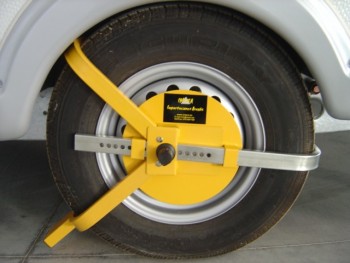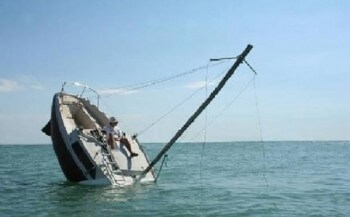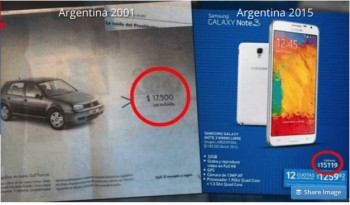Following a dramatic election campaign in Argentina that seemed to go on for ever, including a historic and nerve rattling runoff, President Macri was sworn in last Thursday. If that wasn’t enough drama, the ex president, Cristina Fernandez de Kirchner refused to attend either the swearing in ceremony or the handing over of the presidential baton and sash.In fact, to add even more drama to the already volatile week, the president elect (at the time) had a judge rule that the incumbent president’s mandate end at the stroke of midnight the day before inauguration to prevent her from acting irresponsibly and signing yet more decrees. Hell hath no fury as a woman scorned and so we were glued to our TVs as the story unfolded like some Mexican soap opera.
Lifting the clamp
Back in September I penned an article Cry for Me Argentina describing the Stalinist measures which had been in place since 2011 severely restricting the population of Argentina in gaining access to foreign currency and as a knock-on effect, the almost total block on imports into the country, which I also highlighted in further ramblings here and here. This scenario was known locally as the cepo, the clamp by any other name and was put in place ostensibly to stem capital flight out of the country. It’s effect however, was to stifle growth, breed resentment and create a very healthy black market for the US dollar, known locally as the Blue dollar; a state of affairs that most Argentines have become accustomed to over decades of government mismanagement and institutionalised corruption. Why do we need US dollars? Because the Argentine Peso is worthless junk outside the country and major transactions such as house purchases take place using greenbacks.
Clearly, the clamp was unsustainable, with negative growth over four years and inflation running at nearly 30%; the new administration’s campaign promised an immediate lifting of all such controls, which is exactly what happened last Wednesday. From a layman’s point of view (and believe me, I’m a layman in economics), this means that the average Joe can now walk into a bank and buy/sell foreign currency just like any other normal country. Except Argentina isn’t any other normal country, especially when you consider that interest rates are in the region of 38%, inflation is hovering near 30% and the Argentine peso has just been devalued by 50%. Most Argentines wouldn’t consider this to be an alarming situation (which I don’t either, oddly enough), especially when all things considered, the local currency has in fact devalued 233% since 2003 and inflation has been much higher, historically.
Under President Raul Alfonsin, public payrolls swelled while government revenues remained stagnant. In 1989, only 30,000 out of 30 million Argentines paid any income taxes.
That year, inflation reached an unprecedented 5,000 percent, rising so fast that some supermarkets read prices out over intercoms rather than bothering to update price tags.
Let’s go shopping
It’s clear that the economy needed a short, sharp shock; the patient was in cardiac arrest, with his doctors flapping about like headless chickens and those that weren’t had gone into denial.They simply didn’t want to acknowledge the gruesome diagnosis and instead trudged on, printing yet more banknotes, throwing more fuel on the fire. Many detractors have harshly criticised the new, more liberal measures, calling them irresponsible and warning of a stampede to local banks, which in fact didn’t happen; quite the reverse in fact. Interestingly, both the ex president and the incumbent have used the description ‘normal country’ on numerous occasions, with the outgoing president declaring that her lasting legacy will be that she left us all with a ‘normal country’, whatever the hell that is.
Earlier in the year the WTO ruled against Argentina for its protectionist measures on imports and the new government has already moved swiftly to ‘normalise’ the situation, although the question of personal imports is yet to be clarified, but one has to assume that the model will be continued.
Some phrases and replies we got used to, but hope never to hear again:
- We don’t have an original spare part, but here’s a compatible one made locally.
- For your two week holiday in Miami the government is allowing you to buy US$72.50, provided you complete sixteen online formulae and supply us with your flight number, passenger details and itinerary (including names of hotels) ten minutes before boarding your flight.
- Your parcel of socks (various colours) has been retained by customs, having exceeded the total number of luxury items allowed in one calendar year. Please check back later.
- In order to release your 20ft container of tampons (origin: China), we will require an administrative fee of US$15,000, which you are required to disburse personally in that small wooden shed at the Eastern end of the docks at seven pm tomorrow.You know the shed we mean.
- The photo opportunity with President Obama didn’t go according to plan, so any further purchases through Amazon.com are prohibited forthwith.
So, let’s see what normal can do now, shall we?






The value of prices rises here, too.(USA)
It’s normal in many parts of the world.
Can you please inform me “if and when” the import issues is addressed and/or resolved?
Whilst it’s true that prices rise all over the world Mega, the main thrust of my point is that Argentina has and still does suffer the worst inflation rate in the world, second only to Venezuela and for a time, Zimbabwe.
You can see that can’t you?
I understand it now. I didn’t have much information on Argentina.
What a load of crap!!
How very mature!
Why would you post such a comment? Are you disputing the facts or maybe just having a bad day?
It’s both. If you read the reply from Marc on my comment, you can understand tito’s frustration. I would have said something similar.
I’m trying to send 2 of my friends in Argentina the GTX 950 videocard, and these imports are bad on their end. So much for giving gifts to people that you care about.
First of all; I object more to the tone of Tito’s response than the actual context. Everyone has a right to his or her own opinion but there is a right and wrong way to express it – civility and respect cost nothing.
Furthermore; to refute everything in a curt response which offers nothing in the way of any sort of reasoning or information to support the stance is totally unproductive – as in worthless.
This from the article:
Cannot be much clearer than that. One has to remember that in political and bureaucratic terms, change can be a slow process.
Frankly, I don’t see the issue.
Megaman, I seem to remember that we had an exchange about this topic some months ago and I opened a thread in the forum, here:
https://davescomputertips.com/forum/everything-else/sending-goods-to-argentina/
It’s just too early to say whether the restrictions on personal imports/ mail deliveries will be lifted and, as I said in the article, since commercial restrictions have been normalised, one hopes for a similar model to appear, but as Jim says, this may take time. The government has inherited an unholy mess quite frankly and I wouldn’t advise sending anything just yet. Take it from me.
After I the reply from Jim, I spoke with a friend in Uruguay that would be happy to deliver the “gifts.”
Thanks for the tip.
Tito, I’d be interested to know whether “What a load of crap!!” refers to the way the article was written or the contents and implication of the article.
Please enlighten us.
Hi Marc,
Well we certainly hope that you have a Happier New Year.
Very frustrating for you, and fortunately here in Australia the only overseas online purchases
hassles are that the large retailers pushed our Federal government to add a 10% Goods and Services tax on every purchase from July 1 2017, although many comments from those who oppose the tax state that the cost of running the scheme will have a negative effect on the tax collected.
Happy New Year to everyone at DCT and families.
Jonno
Many thanks Jon
Greedy governments. Don’t you just love them?
“Greedy governments.”
The adjective is not usually needed. With few exceptions, and regardless of political persuasion, governments are usually more concerned with increasing revenue than anything else.